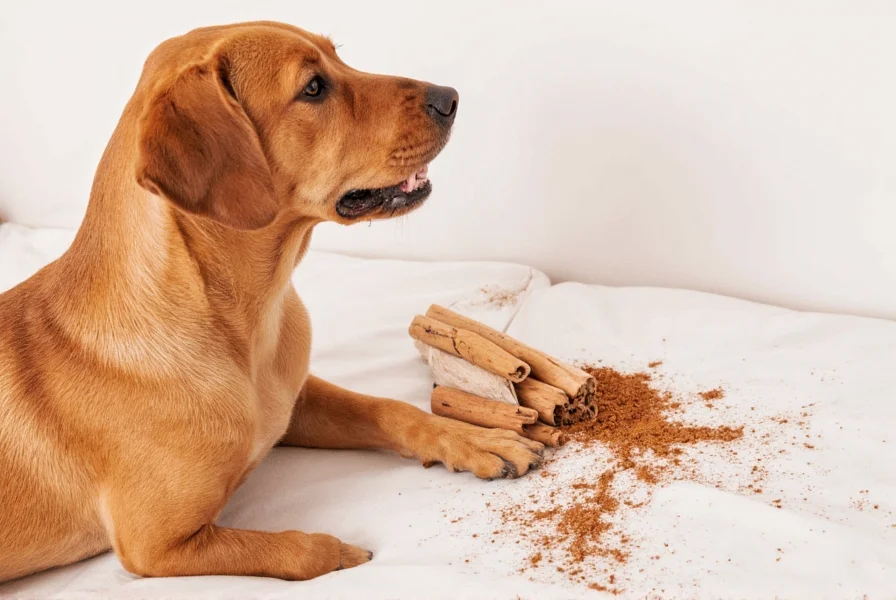Many dog owners wonder whether this common kitchen spice is safe for their canine companions. As pet parents increasingly explore natural remedies and human foods for dogs, understanding the relationship between cinnamon and canine health becomes essential. This comprehensive guide examines scientific evidence about cinnamon consumption for dogs, separating fact from popular myths.
Understanding Cinnamon's Effects on Dogs
Cinnamon, derived from the inner bark of Cinnamomum trees, contains compounds that affect both humans and animals differently. While not classified as toxic to dogs by the ASPCA, its impact depends significantly on quantity, form, and individual dog factors. Unlike chocolate or xylitol, which are definitively dangerous, cinnamon occupies a gray area where moderation is key.
Potential Benefits of Cinnamon for Dogs
Research suggests possible benefits when administered in appropriate amounts:
- Blood sugar regulation: Some studies indicate cinnamon may help stabilize blood glucose levels, potentially benefiting diabetic dogs under veterinary supervision
- Anti-inflammatory properties: The spice contains cinnamaldehyde, which may reduce inflammation
- Antimicrobial effects: May help combat certain bacteria and fungi
- Digestive support: Small amounts might aid digestion in some dogs
However, most evidence comes from human or laboratory studies, with limited specific research on canine applications. Always consult your veterinarian before using cinnamon as a supplement.

Risks Associated with Cinnamon Consumption
Despite potential benefits, several risks require careful consideration:
| Cinnamon Form | Risk Level | Common Symptoms |
|---|---|---|
| Ground cinnamon (small amounts) | Low | Occasional mild digestive upset |
| Ground cinnamon (large amounts) | Moderate | Vomiting, diarrhea, low blood sugar |
| Cinnamon sticks | High | Choking hazard, mouth irritation, intestinal blockage |
| Cinnamon essential oil | Severe | Liver damage, respiratory distress, neurological issues |
Safe Administration Guidelines
If you choose to give your dog cinnamon, follow these evidence-based recommendations:
- Start with minimal amounts: No more than 1/8 teaspoon for small dogs, 1/4 teaspoon for medium dogs, and 1/2 teaspoon for large dogs
- Mix with food: Always combine with wet food or treats to prevent inhalation
- Avoid daily use: Limit to 1-2 times weekly maximum
- Monitor reactions: Watch for 24 hours after first introduction
- Never use essential oil: Cinnamon oil is significantly more concentrated and dangerous
When Cinnamon Becomes Dangerous
Certain situations require immediate veterinary attention:
- Consumption of cinnamon sticks or essential oil
- Ingestion of more than 1 teaspoon for small dogs or 2+ teaspoons for larger breeds
- Symptoms like persistent vomiting, weakness, or difficulty breathing
- Known liver conditions in your dog
Dogs with diabetes, liver disease, or those taking medication require special caution, as cinnamon may interact with treatments. Always discuss supplements with your veterinarian first.

Safe Alternatives to Consider
If you're seeking natural supplements for your dog, these options may be safer with similar potential benefits:
- Turmeric: With black pepper for enhanced absorption
- Ginger: For digestive support
- Coconut oil: For skin and coat health
- Pumpkin puree: For digestive regulation
Practical Applications for Dog Owners
While not essential to canine nutrition, cinnamon can occasionally serve specific purposes:
- Natural deodorizer: Sprinkle small amounts on dog bedding to neutralize odors
- Homemade treat ingredient: In minimal quantities within dog-safe recipes
- Training aid: The distinctive scent may help with certain scent-based training exercises
Remember that commercial dog foods already contain balanced nutrition, making additional spices generally unnecessary. Focus on high-quality commercial foods or veterinarian-approved homemade diets rather than supplementing with human spices.
Consulting Your Veterinarian
Before introducing cinnamon or any new substance to your dog's diet, schedule a consultation with your veterinarian. They can provide personalized advice based on your dog's health history, current medications, and specific needs. Board-certified veterinary nutritionists offer the most specialized guidance for dietary supplements.










 浙公网安备
33010002000092号
浙公网安备
33010002000092号 浙B2-20120091-4
浙B2-20120091-4